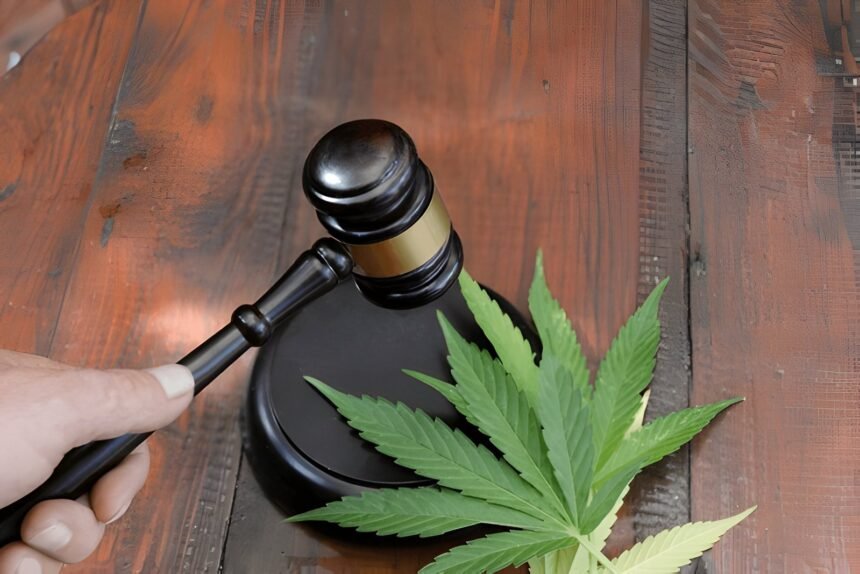The conversation around recreational marijuana is undergoing a significant shift, moving beyond the social and into the sphere of wellness and self-care. This nuance adds depth to the traditional narrative, where recreational marijuana is now viewed through the lens of holistic health. As individuals seek out new methods to enhance their well-being, cannabis emerges as an intriguing component in the wellness toolkit. Below, we delve into the multifaceted relationship between recreational marijuana use and the pursuit of a balanced lifestyle.
Understanding the Connection Between Recreational Marijuana and Wellness
The contemporary wellness movement prioritizes a proactive and inclusive approach to health, emphasizing the importance of emotional and mental balance alongside physical fitness. In this context, recreational marijuana’s role is increasingly acknowledged for its potential benefits. These include relaxation, heightened sensory perception, and creative stimulation, which many find conducive to their overall sense of well-being.
Scientific research offers insights into how cannabis interacts with the human body’s endocannabinoid system, a network that plays a key role in maintaining homeostasis. By engaging with this system, cannabis compounds may influence mood, appetite, and sleep, which are all critical components of a healthy lifestyle. Moreover, as recreational marijuana becomes more mainstream, its acceptance as a legitimate option for wellness is growing.
With this in mind, many individuals are turning to reputable sources like the LA dispensary for quality recreational cannabis products. The increasing legalization and regulation of marijuana have made it easier for consumers to access cannabis safely and responsibly, aligning with their wellness regimes.
Recreational Marijuana and Pain Management: A New Paradigm in Self-Care
Chronic pain is a significant health issue, affecting millions of individuals worldwide. For many, recreational marijuana offers an alternative to traditional pain medication. The analgesic effects of cannabis are well-documented, with THC and CBD again playing prominent roles in pain relief and inflammation reduction.
Patients with conditions such as arthritis, neuropathy, and migraines have reported positive outcomes from using recreational marijuana to manage their symptoms. The shift towards plant-based therapies aligns with a more holistic attitude towards health, with cannabis acting as a natural complement to other pain management techniques.
Additionally, marijuana is considered by some as a safer alternative to opioids, which carry a high risk of dependency and a host of side effects. Marijuana’s less addictive nature and lower risk profile make it an attractive option for those looking to minimize potential harm while managing pain.
Enhancing Quality of Life: The Use of Recreational Marijuana for Relaxation
In an era where relaxation often takes a back seat to productivity, recreational marijuana presents a welcome avenue for decompression. The relaxation benefits of cannabis have propelled it to become a popular choice among those looking to unwind after a stressful day or to enhance leisure activities.
Activities such as listening to music, enjoying nature, or engaging in artistic pursuits can take on a heightened sense of enjoyment and immersion with the responsible use of cannabis. In moderation, marijuana can amplify the simple pleasures of life, contributing to an overall sense of contentment and joy.
For some individuals, recreational marijuana serves as a tool for socialization, enhancing connectivity and camaraderie among friends. Shared experiences under the influence of cannabis can foster a sense of community and belonging, which are key factors in emotional well-being.
Navigating the Legal Landscape: Responsible Use of Recreational Marijuana in Wellness
The evolving legal landscape surrounding recreational marijuana warrants careful navigation. As legalization becomes more widespread, understanding state and local regulations is vital for anyone integrating cannabis into their wellness routine. This includes recognizing limitations on quantities, places of purchase, and consumption settings.
Responsible use is a cornerstone of recreational marijuana in wellness. This responsibility encompasses not only adherence to legal guidelines but also self-awareness and moderation. Knowing one’s limits, avoiding impairment during critical tasks such as driving, and respecting non-use settings are paramount for maintaining a safe and respectful approach to cannabis wellness.
Overall, the integration of recreational marijuana into wellness and self-care routines represents a nuanced shift towards a more open-minded approach to health and well-being. When used responsibly and with an informed perspective, cannabis can indeed play a valuable role in enhancing the quality of life, managing physical discomfort, and fostering relaxation in a society where the pressures of daily life are ever-present.





